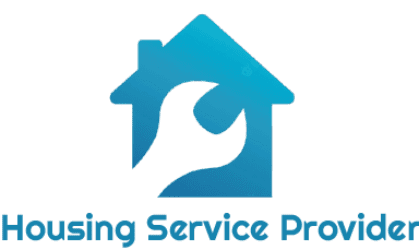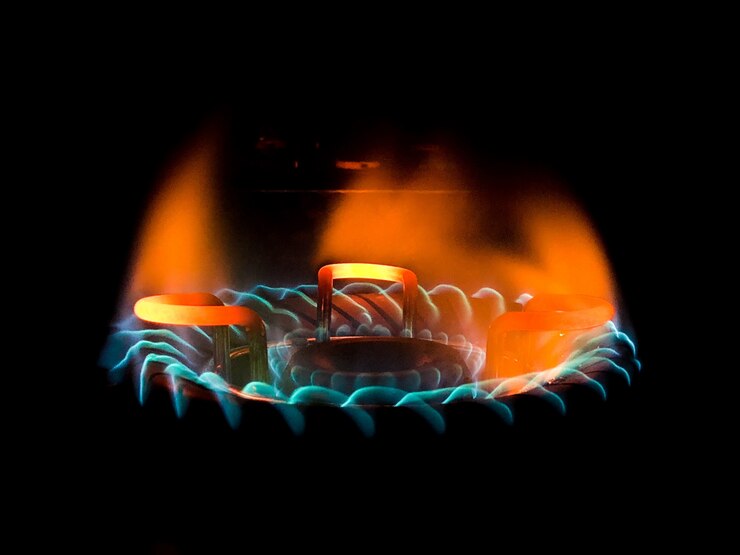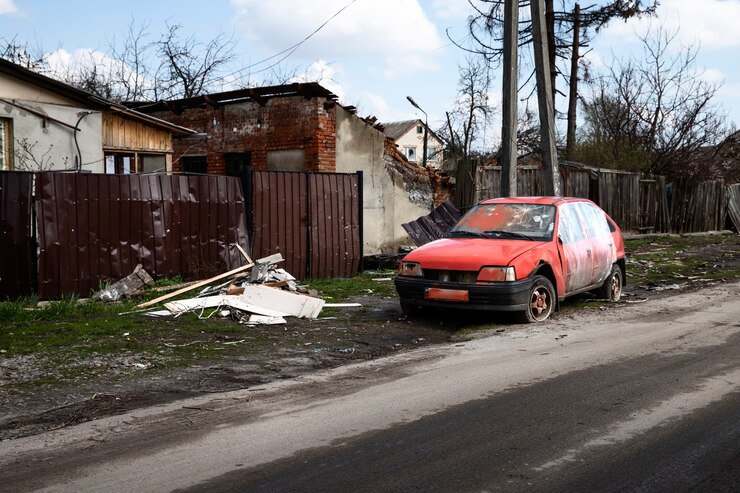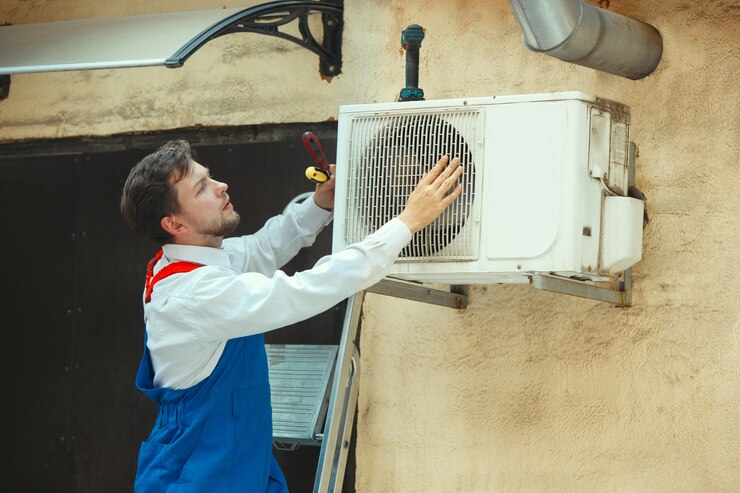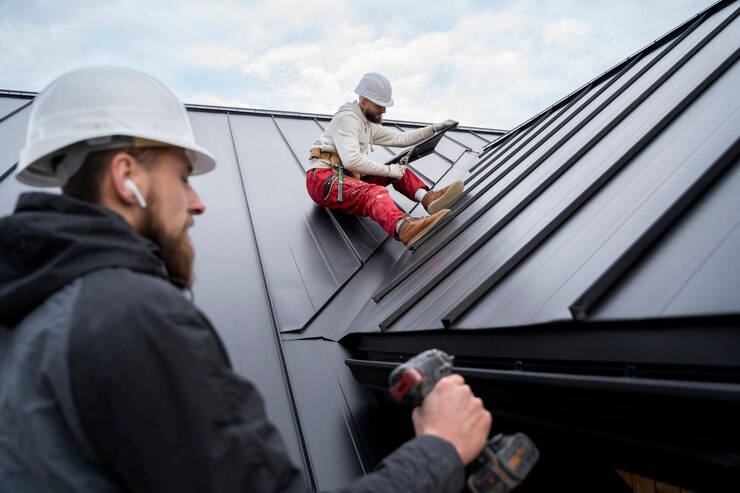Gas lines are typically not covered by home insurance. However, it is important to review your policy and consult with your insurance provider for specific coverage details.
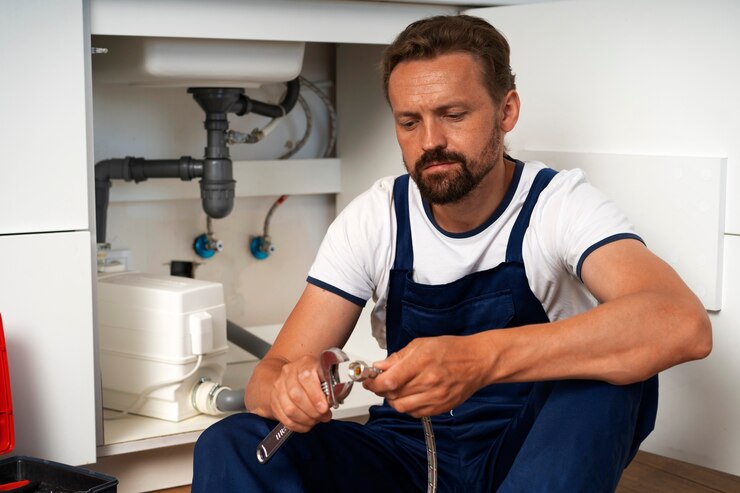
Understanding Home Insurance Coverage
Home insurance provides coverage for various aspects of your property and belongings. It is essential to have a clear understanding of the types of coverage offered by home insurance, common exclusions in home insurance policies, and the importance of reviewing policy terms and conditions.
Let’s explore these in detail:
Types Of Coverage Offered By Home Insurance
- Dwelling coverage: This type of coverage protects the structure of your home, including walls, roof, foundation, and attached structures like garages. It provides financial assistance for repairs or rebuilding in case of damage from covered perils.
- Personal property coverage: Your belongings, such as furniture, electronics, and clothing, are protected under personal property coverage. If these items are damaged or stolen, you can claim for their replacement or repair.
- Liability coverage: Accidents can happen at any time, and if someone is injured on your property, liability coverage offers protection. It covers legal expenses, medical bills, and damages in case you’re sued for bodily injury or property damage.
- Additional living expenses coverage: If your home becomes uninhabitable due to a covered peril, this coverage helps with temporary living expenses, like hotel bills or rental costs.
- Medical payments coverage: This coverage pays for minor medical expenses if a guest is injured on your property, regardless of who is at fault. It can cover costs like ambulance rides, x-rays, or hospital visits.
Common Exclusions In Home Insurance Policies
While home insurance covers a wide range of risks, it’s important to be aware of the common exclusions that might not be covered in your policy:
- Flood damage: Most standard home insurance policies do not cover flood damage caused by natural disasters or other water-related incidents. Separate flood insurance may be needed to protect your property in flood-prone areas.
- Earthquake damage: Similar to flood damage, earthquakes are often not covered by standard home insurance policies. If you live in an earthquake-prone region, consider purchasing a separate earthquake insurance policy.
- Routine wear and tear: Regular maintenance and repairs are not covered under home insurance policies. Damage resulting from lack of maintenance or age-related deterioration is typically excluded.
- Intentional damage: Deliberate destruction of property or personal belongings is not covered by home insurance. Any damage caused intentionally by you or someone else will not be eligible for a claim.
Importance Of Reviewing Policy Terms And Conditions
It is crucial to carefully review your home insurance policy terms and conditions to ensure you have adequate coverage and understand any limitations or exclusions. Here’s why it matters:
- Coverage gaps: By understanding your policy, you can identify any coverage gaps and take appropriate measures to fill them. This may involve purchasing additional coverage or riders to protect specific items or situations.
- Up-to-date protection: Reviewing your policy regularly ensures your coverage meets your current needs. Changes in your property value, possessions, or lifestyle may require adjustments to your coverage.
- Avoid surprises during claims: Familiarizing yourself with the terms and conditions helps you understand what is covered and what is not. This reduces the chances of unexpected surprises or disputes when making a claim.
- Cost-effective options: Reviewing your policy allows you to compare coverage and costs from different insurance providers. This ensures you are getting the best value for your money.
Understanding the types of coverage offered by home insurance, familiarizing yourself with common exclusions, and reviewing policy terms and conditions are key to ensuring you have adequate protection for your home and belongings. Take the time to review your policy, ask questions, and make informed decisions to protect what matters most to you.
Coverage For Gas Line Damage
Determining If Gas Line Damage Is Covered:
- Gas line damage can be a major headache for homeowners, but the question on many minds is whether or not it’s covered by home insurance. Here’s what you need to know:
- Coverage for gas line damage varies depending on the specific terms and conditions of your home insurance policy. To determine if your policy covers this type of damage, you’ll need to review the policy documentation or contact your insurance provider directly.
- While coverage can vary, it’s important to note that not all home insurance policies cover gas line damage. Some policies may offer limited coverage or exclude it altogether. Understanding your policy’s coverage is crucial for ensuring you’re adequately protected.
- When reviewing your policy, pay attention to any specific language or exclusions related to gas lines. Insurance companies may have specific guidelines for coverage, such as damage caused by natural disasters or accidents.
- If you’re unsure whether your policy covers gas line damage, speaking with your insurance provider can help clarify the details. They can explain the coverage options available and address any concerns you may have.
What Types Of Damage Are Typically Covered:
- Home insurance policies typically provide coverage for certain types of damage. While specific coverage can vary, here are some types of damage that are typically covered by home insurance:
- Accidental damage: If your gas line is damaged due to a covered peril, such as a fire, explosion, or severe weather event, your home insurance policy may provide coverage for repairs or replacement.
- Natural disasters: In some cases, home insurance policies may cover gas line damage caused by natural disasters like hurricanes, tornadoes, or earthquakes. However, this coverage may be subject to specific limitations or exclusions.
- Wear and tear: Home insurance usually doesn’t cover damage resulting from normal wear and tear, including gradual deterioration of gas lines over time. It’s important to keep up with regular maintenance to minimize the risk of damage.
- Third-party damage: If someone else causes damage to your gas line, such as a contractor during renovations or a neighbor’s tree falling, your home insurance policy may provide coverage for repairs.
Coverage Limits And Deductibles For Gas Line Damage:
- When it comes to coverage limits and deductibles for gas line damage, it’s essential to understand the details of your home insurance policy. Here’s what you should know:
- Coverage limits: Home insurance policies typically have coverage limits for different types of damage, including gas line damage. These limits represent the maximum amount the insurance company will pay for a covered claim. Review your policy to understand the specific coverage limits for gas line damage.
- Deductibles: Most home insurance policies require policyholders to pay a deductible before coverage kicks in. The deductible is the amount you’re responsible for paying out-of-pocket before your insurance company starts covering the costs of a claim. Make sure you know your policy’s deductible amount for gas line damage.
- It’s crucial to consider how coverage limits and deductibles may impact your ability to make claims for gas line damage. Higher deductibles can lower your insurance premiums, but it also means you’ll have more out-of-pocket expenses in the event of a claim. Understanding these factors will help you evaluate the adequacy of your coverage and ensure you’re financially protected.
Remember, each insurance policy and provider is unique, so it’s important to thoroughly review your policy documentation or speak directly with your insurance company to obtain accurate and up-to-date information about coverage for gas line damage.
Steps To Take If Gas Line Damage Occurs
Are Gas Lines Covered By Home Insurance?
Gas line damage can be a major concern for homeowners. Whether it’s due to a natural disaster, old infrastructure, or something else entirely, dealing with a damaged gas line requires quick action and an understanding of the insurance coverage available.
In this section, we’ll discuss the steps you should take if you encounter gas line damage and explore how home insurance providers can help you in such situations.
Immediate Actions To Ensure Safety:
When faced with gas line damage, it is of utmost importance to prioritize your safety and the safety of those around you. Here are some immediate actions you should take:
- Leave the area: If you smell gas or suspect a gas leak, evacuate the premises immediately. Don’t use any electronic devices, light switches, or open flames that could ignite the gas.
- Call emergency services: Dial the emergency services number in your area to report the gas leak. They will dispatch the appropriate professionals to address the situation.
- Shut off the gas supply: Locate the gas meter on your property and turn off the main gas valve. This will help prevent further leakage and reduce the risk of accidents.
Taking these immediate actions will help ensure everyone’s safety and minimize the potential hazards associated with gas line damage.
Contacting The Gas Company:
Once you have secured your safety and the immediate area, it’s time to contact the gas company. Reach out to them as soon as possible to report the gas line damage. The gas company will send a technician to assess the situation, repair the damage, and restore the gas supply to your property.
Remember:
- Provide accurate information: When contacting the gas company, provide them with essential details such as your address, the nature of the damage, and any relevant observations about the situation.
- Follow their instructions: The gas company will guide you on what steps to take until their technicians arrive. It’s crucial to follow their instructions to ensure a swift and safe resolution.
By contacting the gas company promptly and cooperating with their instructions, you can help expedite the repair process and restore the gas supply to your home.
Filing A Claim With The Home Insurance Provider:
After addressing the immediate safety concerns and contacting the gas company, it’s time to reach out to your home insurance provider. Here’s how to navigate the claims process effectively:
- Review your policy: Take the time to familiarize yourself with your home insurance policy and understand its coverage for gas line damage. Pay specific attention to exclusions and limitations that may apply.
- Document the damage: Before making any repairs, document the gas line damage by taking photographs or videos. These visual records will serve as evidence when filing your insurance claim.
- Notify your insurance provider: Contact your home insurance provider and inform them about the gas line damage. They will guide you on the necessary steps to file a claim and provide you with the required forms and documentation.
- Provide accurate information: When filing the claim, ensure all the information provided is accurate and complete. This will help expedite the processing of your claim and ensure the best possible outcome.
Remember, each insurance policy is different, so it’s crucial to understand your coverage and communicate effectively with your insurance provider throughout the claims process.
By following these steps, you can navigate the process of dealing with gas line damage effectively while ensuring your safety, collaborating with the gas company, and maximizing your chances of a successful insurance claim. Remember, consult with professionals in the field for specific guidance tailored to your situation.
Importance Of Regular Maintenance
The Role Of Regular Maintenance In Preventing Gas Line Damage
Regular maintenance plays a crucial role in keeping your gas lines in good condition and preventing potential damage. By properly maintaining your gas lines, you can avoid costly repairs and ensure the safety of your home. Here are some key points to consider:
- Scheduling professional inspections: Regular inspections by qualified technicians can help identify any issues or potential hazards with your gas lines. These inspections can catch problems early on, before they escalate into major issues.
- Checking for leaks: Gas leaks can be extremely dangerous, so it’s important to regularly check for any signs of leaks. This includes looking for the smell of gas, hissing sounds near gas appliances, or unusually high gas bills. If you suspect a gas leak, it’s crucial to take immediate action and contact your gas provider.
- Ensuring proper ventilation: Proper ventilation is essential to prevent the buildup of gases like carbon monoxide. Make sure that your gas appliances, such as water heaters or furnaces, have adequate ventilation to safely expel these gases.
- Keeping the area around gas lines clear: It’s important to keep the area around your gas lines clear from debris, plants, or other objects. These obstructions can interfere with the proper functioning of your gas lines and increase the risk of damage.
- Avoiding diy repairs: Gas line repairs should always be left to the professionals. Attempting to fix or modify gas lines yourself can be extremely dangerous and may void your home insurance coverage.
How Maintenance Can Impact Home Insurance Coverage
Regular maintenance of your gas lines can have a significant impact on your home insurance coverage. Insurance providers typically expect homeowners to take appropriate measures to maintain their properties, including the gas lines. Here’s why maintenance matters:
- Coverage eligibility: Neglecting regular maintenance and inspections of your gas lines may result in insurance providers denying claims related to gas line damage. Insurance companies may consider lack of maintenance as negligence on the part of the homeowner.
- Premiums and deductibles: Maintaining your gas lines properly can also help you keep your insurance premiums low. Insurance providers may offer discounts if you can demonstrate that you have taken steps to reduce the risk of gas line damage.
- Peace of mind: Regular maintenance not only ensures coverage eligibility but also gives you peace of mind knowing that your gas lines are in good working order. This reduces the risk of accidents, protects your property, and safeguards your loved ones.
Tips For Maintaining Gas Lines Properly
Proper maintenance of your gas lines is essential for your safety and home insurance coverage. Here are some tips to follow:
- Schedule annual professional inspections: Regular inspections by certified technicians can help identify any potential issues and ensure that your gas lines are functioning properly.
- Be alert for warning signs: Stay vigilant for any signs of gas leaks, such as the smell of gas, hissing sounds near appliances, or unexplained increases in gas bills. If you notice any of these signs, take immediate action and contact your gas provider.
- Clear the area around gas lines: Keep the area around your gas lines clear from debris, vegetation, or other objects that could interfere with their functioning.
- Avoid diy repairs: Gas line repairs should always be handled by professionals. Attempting to fix or modify gas lines yourself can be dangerous and may result in insurance coverage issues.
- Follow manufacturers’ guidelines: Adhere to the maintenance recommendations provided by manufacturers for your gas appliances. This includes regular cleaning, filter replacements, and any other specific instructions.
Remember, by prioritizing regular maintenance of your gas lines, you can protect your home, ensure your safety, and maintain the integrity of your home insurance coverage. So, don’t overlook this important aspect of homeownership.
Additional Coverage Options
Optional Endorsements Or Riders For Gas Line Coverage:
- Adding optional endorsements or riders to your home insurance policy can provide coverage for gas lines, giving you peace of mind in case of any damage or accidents.
- These additional coverage options are not typically included in a standard home insurance policy, but they can be added for an extra cost to enhance your coverage.
- Optional endorsements or riders specifically cater to gas line coverage and offer financial protection for repairs, replacements, or liability claims related to your gas lines.
- By adding these endorsements or riders to your policy, you can mitigate the risks associated with gas line incidents and ensure that you are adequately covered in case of any unforeseen events.
- Consult with your insurance provider to understand the specific endorsements or riders available for gas line coverage and choose the ones that best fit your needs.
- Keep in mind that these optional endorsements or riders may vary in terms of coverage limits and exclusions, so it’s important to carefully review the details before making a decision.
Understanding The Cost And Benefits Of Additional Coverage:
- Before adding optional endorsements or riders for gas line coverage, it’s crucial to understand both the cost and benefits associated with these additional coverage options.
- The cost of these endorsements or riders can vary depending on factors such as the type of endorsements chosen, the coverage limits, and the location of your home.
- While these additional coverage options may increase your insurance premium, they can provide significant financial protection in the event of gas line-related incidents.
- Consider the potential costs of repairs, replacements, and liability claims related to gas lines, and weigh them against the expense of adding these optional coverage options to determine if they are worth the investment.
- Evaluate the benefits that these endorsements or riders offer, such as coverage for gas line leaks, damage caused by gas line accidents, and liability claims arising from gas line incidents.
- Assess your specific needs and preferences to determine if the benefits outweigh the costs and if adding these additional coverage options is the right choice for you.
Consultation With An Insurance Agent For Tailored Coverage:
- To ensure you have the most suitable coverage for your gas lines, it is advisable to consult with an insurance agent who can provide expert guidance and tailor your policy to meet your specific needs.
- An insurance agent can assess your home’s gas line infrastructure, evaluate any potential risks, and recommend the most appropriate optional endorsements or riders for gas line coverage.
- By consulting with an agent, you can gain a better understanding of the coverage options available, their limitations, and how they align with your individual requirements.
- The agent can also help you understand the fine print, including exclusions or limitations that may apply to gas line coverage, enabling you to make informed decisions.
- Take advantage of their expertise to ensure that you are adequately protected against potential gas line incidents and that you maximize the benefits offered by your home insurance policy.
- Remember, insurance agents are trained professionals who can provide personalized advice based on your unique circumstances, making it worth engaging in a conversation with them about your gas line coverage needs.
Frequently Asked Questions On Are Gas Lines Covered By Home Insurance
Are Gas Lines Covered By Home Insurance?
No, gas lines are typically not covered by home insurance policies. While home insurance may cover damages caused by a gas leak, it usually does not cover the repair or replacement of gas lines themselves. It is important to check with your insurance provider for specific coverage details and consider additional coverage options if necessary.
Conclusion
It is essential to understand the coverage provided by your home insurance when it comes to gas lines. While policies may vary, most standard home insurance plans do not cover the repair or replacement of gas lines. It is crucial to review your policy carefully and consider adding optional coverage or endorsements specifically for gas lines.
Taking preventive measures to minimize the risk of gas line issues, such as regular maintenance and inspections, can also help protect your home and ensure your safety. Additionally, reaching out to your insurance provider to clarify any doubts or questions regarding gas line coverage is recommended.
By being proactive and knowledgeable about your insurance policy, you can make informed decisions to adequately protect your home and mitigate potential financial burdens associated with gas line damages or accidents.
